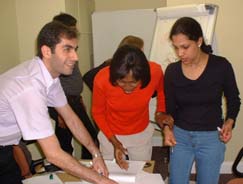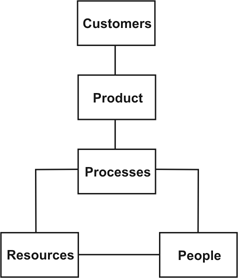Will you run the game for me?
Our experience in running the games many times with different teams enable us to ensure that participants enjoy the game and the learning points are brought out.
If you only intend to run the game once it is well worth getting a quote for us to run the game for you. It will save you the time of learning about the game and you only pay for our time – not the cost of the game.
This is a cost-effective method of developing your team(s) with the bonus of having no concerns of running the game.

 A business game is an interactive structured training activity with specially created conditions, which aim to reproduce those of a working situation in a successful business.
A business game is an interactive structured training activity with specially created conditions, which aim to reproduce those of a working situation in a successful business. In simple terms, it is an effective combination of people, resources and processes to produce a product which customers will value and buy.
In simple terms, it is an effective combination of people, resources and processes to produce a product which customers will value and buy.